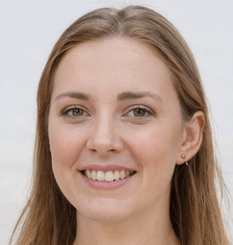“How grateful we are for the work Africare is doing! I know I speak on behalf of millions of human lives hung in the ballance.”
In 1970, West Africa was in the midst of one of the most severe droughts in its history. Animals were dying. Crops could not grow. Villagers were fleeing their homes in search of water. Millions of human lives hung in the balance.
Among those providing help — medical aid to the Maine-Soroa Hospital in Diffa, Niger — were 17 American volunteers, led by William O. Kirker, M.D., and Barbara Jean A. Kirker, who named their group “Africare.” (The Kirkers themselves had been working in Africa, to improve African health care, since the mid-1960s.)
Eventually, the fledgling Africare needed more support. Diori Hamani, then president of the Republic of Niger, appealed to others in the United States on the effort's behalf. He went on to pose a broader question: Why don't black Americans, whose ancestors came from the continent, respond to the needs in Africa?
It was to C. Payne Lucas, among others, that President Diori Hamani addressed his appeal. Lucas was director of the Peace Corps Office of Returned Volunteers in Washington, D.C. He had served previously in Niger and knew the president from that time. Dialogue ensued. In addition to President Diori Hamani, Kirker and Lucas, other incorporators were the Washington-based Nigerien diplomat Oumarou G. Youssoufou and Joseph C. Kennedy, Ph.D., former Peace Corps director in Sierra Leone.
What emerged was a concept for a new breed of assistance organization: progressive like America, culturally respectful like the Peace Corps and, uniquely, multiracial in origin as well as Africa-wide in scope.
In 1970, Africare was incorporated in Hawaii, with Kirker as its founder and first president. In 1971, Africare was both reconstituted and permanently re-incorporated in Washington, D.C.; and Lucas became the executive director (and later the president), and Kirker joined the Board. The original concept — the “new breed of assistance organization” — had become a reality.
A $39,550 budget in 1971, a U.S. headquarters in the basement of Lucas's home (and later in donated office space at the Embassy of Niger) and one project in Niger hardly signaled an impressive start. But Africare's founders loved Africa. They envisioned what Africa could become. They also had the tremendous drive needed to pursue Africa's dreams.
“The task undertaken by Africare is immense,” said Diori Hamani, Africare's first chairman, “as immense as the continent of Africa itself.”
In the beginning, Africare concentrated on helping to alleviate the effects of severe drought in West Africa. By the mid-1970s, Africare had shifted its emphasis to development programs in the areas of food, water, the environment and health — expanding in the late 1980s to include civil-society development and governance.
• Africare has been a pioneer in village-based rural development in Africa. In the area of health, special achievements have been in child survival, river blindness control, national-level pharmaceutical management and HIV/AIDS prevention at the grassroots. Africare has constructed thousands upon thousands of wells and irrigation systems, bringing safe, reliable water supplies to some of the most isolated, desertified communities in Africa. Food production, food monetization and food security continue to represent major focal points of Africare's work — as does assistance to small-scale entrepreneurs, from edible oil producers throughout Southern Africa to women farmers and women-owned co-ops Africa-wide.
• Africare has worked on the front lines of virtually every humanitarian emergency in Africa since 1970: the Sahelian drought of the 1970s; the Somalia refugee crisis and the Africa-wide drought of the 1980s; in the 1990s, crises brought on by warfare in Angola, Somalia, Liberia, Sierra Leone, Rwanda, Burundi and elsewhere; and since 2000, food crises and flooding as well as the genocide in Darfur.
• Africare has involved one of the most diverse donor bases in the charitable world. Donors have ranged from philanthropic foundations, multinational corporations, the U.S. government, foreign governments and international agencies such as the United Nations — to small businesses, community groups, religious groups, educational institutions, other private organizations and thousands of individuals.
To date, Africare has delivered more than $675 million in assistance and support — representing 2,000 projects and millions of beneficiaries — to 36 countries Africa-wide. Today, Africare's 150-plus programs reach families and communities in some 25 nations in every region of Africa.
In mid-June 2002, C. Payne Lucas retired after 31 years as president of Africare — and Africare welcomed as its third president, Julius E. Coles: a 28-year veteran of the U.S. Agency for International Development, first Director of the Ralph J. Bunche International Affairs Center at Howard University and, most recently, Director of the Andrew Young Center for International Affairs at Morehouse College.

Barbara Meier schreibt seit vielen Jahren für die NPAlliance Ratgeber und Testberichte. Dabei legt sie großen Wert auf die Ausführlichkeit sowie Richtigkeit ihrer Artikel. Sie zählt zu den wenigen Experten in ihrem Gebiet und hat sich über die letzten Jahren einen Namen in der Gesundheitsbranche gemacht.
